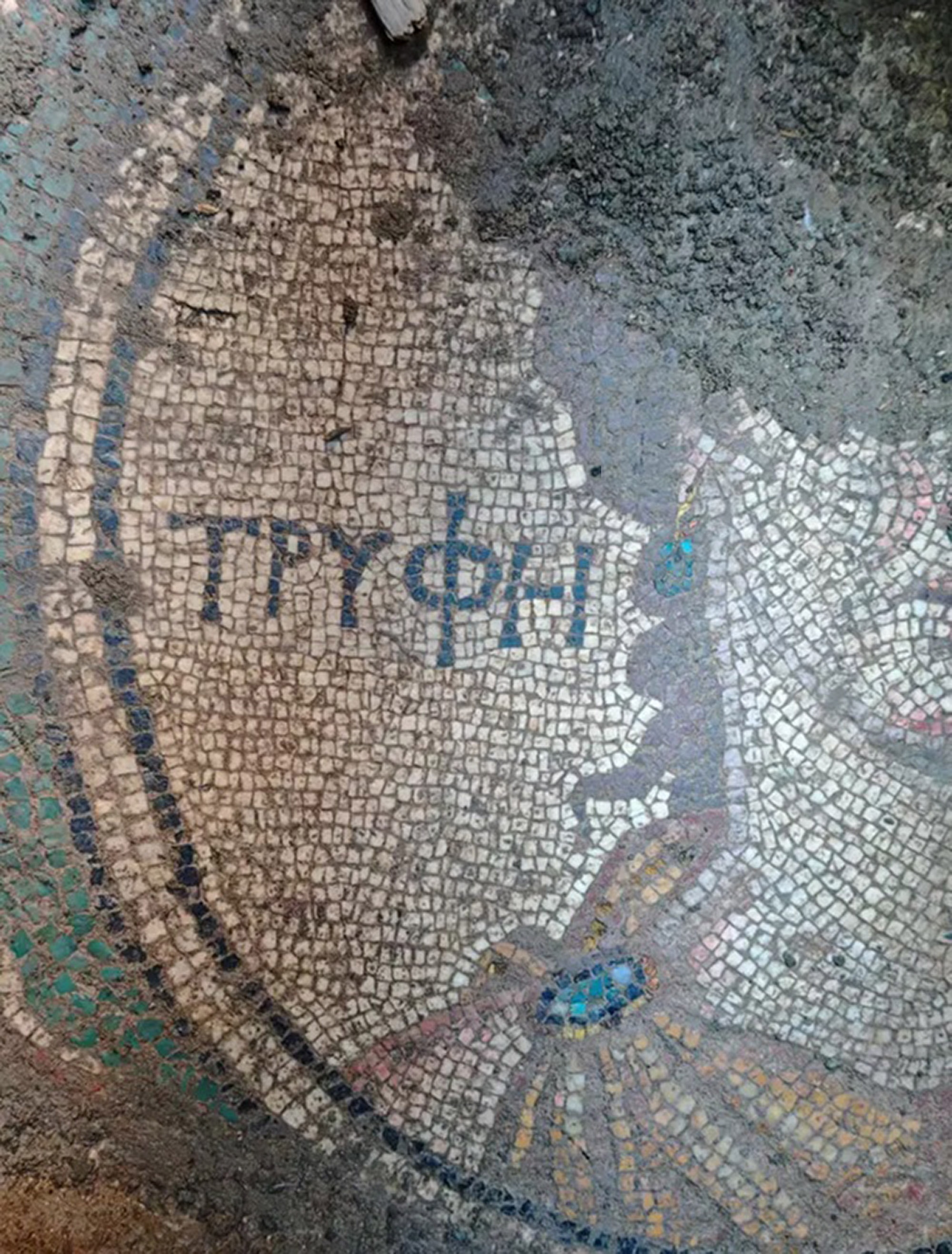Four people have been arrested after carrying out a clandestine excavation of a priceless ancient mosaic and then drawing attention to their crime by bragging about it on social media.
The illegal dig took place in the town of Zile, in Turkey's Tokat Province, where the suspects allegedly unearthed the artwork while planting a vineyard at the rear of a private property.
Instead of alerting authorities, they documented their find and shared footage online, a decision that ultimately led to their arrest.

In the video, a man identified as M.S., 45, proudly filmed the excavation and included a handwritten note bearing the inscription: "Tokat 08.04.2025 Memet."
The footage, shared in April, also showed another individual actively digging at the site.
One of the most significant discoveries was a three-metre-square (32-foot-square) mosaic, adorned with a female figure and the Ancient Greek word "ΤΡΥΦΗ," which translates as "indulgence" or "luxury."
The motif, experts say, suggests the site could date back to the late Hellenistic or early Roman period, when such imagery was used to convey themes of beauty, abundance, and pleasure.

The video quickly became a key piece of evidence.
Acting on a tip-off, the provincial gendarmerie raided the property on 6th May, uncovering the hidden mosaic beneath makeshift coverings made from sacks.
Officers said the suspects had taken steps to conceal the site but had not reported the discovery, as required under Turkish law.
M.S. and three other suspects, identified as F.S., S.S., and A.S, were detained at the scene.
Following a court hearing, F.S. and A.S. were remanded in custody and transferred to Zile Type M Closed Prison. M.S. and S.S. were released under judicial supervision pending further legal proceedings.
The case is being prosecuted under Turkey's Law on the Protection of Cultural and Natural Assets, which mandates the preservation and official reporting of archaeological finds.
Heritage officials have taken custody of the mosaic and will carry out a detailed examination to determine its historical significance and origin.
Zile, known in antiquity as Zela, has a rich archaeological heritage.

It was famously the site of Julius Caesar's swift victory over Pharnaces II of Pontus in 47 BCE, commemorated by his famous phrase “Veni, Vidi, Vici."

